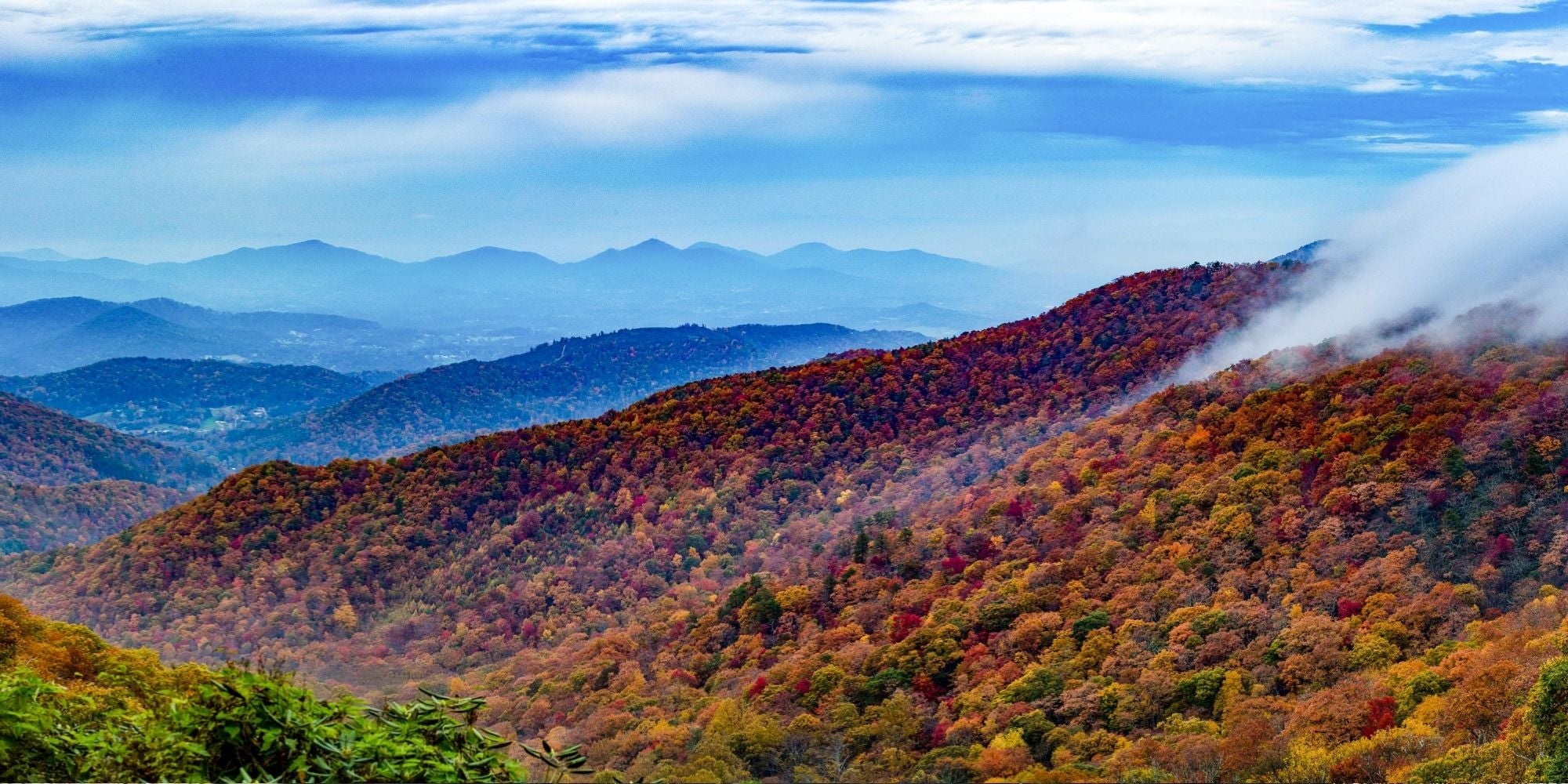
If you are traveling to the Smoky Mountains, you might be worried about altitude sickness. Based on our years of high altitude experience, we'll share with you our top researched tips to avoid altitude sickness smoky mountains.
Smoky Mountains altitude goes as high as 6,643 feet (2,025 m) above sea level.¹
The Smoky Mountains are a mountain range in between Tennessee and North Carolina, just a few hours from Knoxville, Chattanooga, and Asheville. The Great Smoky Mountains National Park is one of the most visited national park in the United States, with more than 14 million visitors each year.
Smoky Mountains altitude can range based on what part you're traveling to:
If you're planning a trip and wondering whether you can get altitude sickness in the Smoky Mountains, the answer is yes.
While many areas of the Smoky Mountains may have no risk of altitude sickness, when you get to places like Mountain LeConte and Clingmans Dome at over 6,500 feet, altitude sickness can become an issue.
While even places as low as 5,000 feet like Denver can cause mild symptoms of altitude sickness, according to University of Michigan, altitude sickness can start at altitudes above 6,000 feet.²
Based on these facts, you can get altitude sickness in certain areas of the Smoky Mountains.
Smoky Mountains altitude sickness, also known as acute mountain sickness (AMS), occurs when your body has trouble adjusting to the lower amount of oxygen in the air.
The Smoky Mountains, which have an elevation ranging from around 875 to 6,643 feet, are not especially high compared to other mountain ranges. However, if you are coming from a lower elevation, you may still be at risk for altitude sickness.
The symptoms of Smoky Mountains altitude sickness may develop within 24 hours. These may include headache, nausea, vomiting, and fatigue.
Smoky Mountains altitude sickness symptoms:
With the risk of altitude sickness in the Smoky Mountains, it's best to be prepared to help avoid it.
At the higher altitudes of the Smoky Mountains, the air is thinner and contains less oxygen, which can make it feel harder to breathe.
This is because the atmospheric pressure is lower at higher elevations, so there is less oxygen in the air that you breathe. At the high points of the Smoky Mountains at over 6,000 feet, the oxygen levels can be around 5% lower than at sea level.³
The symptoms of altitude sickness, which can include shortness of breath, can be caused by this lack of oxygen.
If you are coming from a lower elevation, you may notice that it feels harder to breathe in the Smoky Mountains, especially if you are engaging in physical activity. This is normal and should improve as your body adjusts to the altitude.
If you plan to visit the breathtakingly beautiful park called the Smoky Mountains, altitude sickness could ruin your trip fast.
Based on our years of experience with altitude sickness out of Colorado, we'll share our best tips to avoid altitude sickness in the Smoky Mountains.
Here are five tips that can help you avoid altitude sickness Smoky Mountains:
To conclude, follow these top researched tips to avoid altitude sickness Smoky Mountains — including staying hydrated, avoiding strenuous activity, getting plenty of rest, limiting alcohol, and supplementing glutathione.

Zaca chewables are the perfect supplement for any adventurer looking to maximize their travel experience. These chewables have been specially formulated to help you rehydrate, replenish, and recover faster. Made with natural ingredients including glutathione, this can boost your body's antioxidant abilities. Simply take 2-4 chewables a day during travel, or when needed. Try Zaca Chewables today and maximize your physical performance.
SOURCES:
1. Great Smoky Mountains
https://en.wikipedia.org/wiki/Great_Smoky_Mountains
2. Altitude Sickness University Of Michigan Health Service
https://uhs.umich.edu/travel-altitude-sickness
3. Oxygen Levels at Altitude
https://wildsafe.org/resources/ask-the-experts/altitude-safety-101/oxygen-levels/
4. Tips to Boost Your Oxygen Saturation Level at Home
https://www.icicilombard.com/blogs/health-insurance/hi/5-tips-to-boost-your-oxygen-saturation-level-at-home
5. Sleep: The Secret Ingredient of Injury Recovery
https://www.orthocarolina.com/media/sleep-the-secret-ingredient-of-injury-recovery
6. Effect of high altitude (7,620 m) exposure on glutathione
https://pubmed.ncbi.nlm.nih.gov/11320641/
Copy the coupon code & use it at checkout